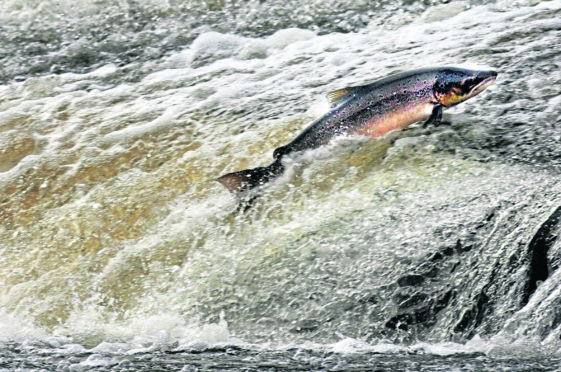Campaigners have claimed that millions of salmon sold by the country’s fish farms should not be branded as Scottish – as salmon eggs are being imported from Norway and Iceland to boost stocks.
More than 65 million foreign eggs, or ova, were shipped to Scottish fish farms last year, up from 57.9 million in 2017.
The foreign ova are hatched in Scotland and the fish reared in sea cages. Once they have been harvested and packaged, they are marketed as Scottish, despite originally hailing from abroad.
Fish farmers insist importing eggs is vital to grow the salmon industry, which they hope will double in value by 2030.
But critics claim the figures are evidence of “food fraud” and that consumers are being duped into believing they are buying completely Scottish products. Some also fear foreign ova could lead to the spread of devastating viral diseases.
Scottish Salmon Watch’s Don Staniford said: ‘This is deceptive marketing and it is a salmon scandal.
“Twenty years ago Scottish salmon came from domestic eggs but the industry are ramping up the number of eggs. Scottish salmon should now be renamed Norwegian salmon with ‘Made in Norway’ stamped on the packaging.
‘They are trading on Scotland’s good image. We want the importing of eggs to stop.’
However, Hamish Macdonell, director of strategic engagement for the Scottish Salmon Producers’ Organisation, said: “All imported eggs are subject to stringent legal controls to ensure their highly regulated biosecurity.
“All of the eggs used by Scottish salmon farmers hatch and complete their life cycle in Scotland. Scottish provenance is defined by the environment in which the fish are grown.
“The number of eggs imported has gone up, from 59.7 million in 2015 to 65.8 million in 2018, a rise of 10%, which is in line with the industry’s ambition to achieve 5% year-on-year growth.”
